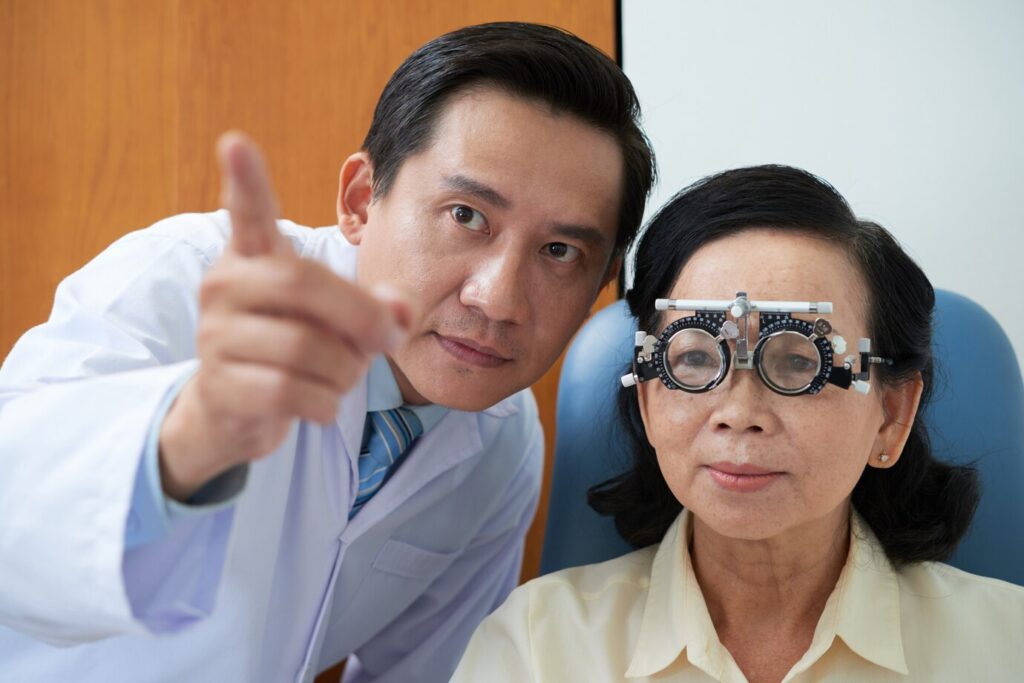
Allow me to introduce you to my neighbor, George. George, at 75, is the man who never skips his morning cup of oatmeal topped with a mountain of blueberries, walks his golden retriever twice a day, and waves at everyone. When I questioned him about his consistency, he replied, ” I like seeing where I’m going.”
Easy, correct? But beneath George’s daily rituals are strong, scientifically supported techniques for healthy aging and preventing age-related diseases including age-related macular degeneration (AMD), a major cause of visual loss among those over 50.
I am a PhD scientist passionate about anti-aging (and a self-proclaimed kale evangelist), here to guide you on how tiny, sensible decisions like George’s can save your eyes and health for the long run. Promoting general lifespan, let us explore some sensible, down-to-earth techniques for controlling and preventing AMD.
Your dietary choices significantly impact your vision, cognitive abilities, and mobility as you age. AMD directly links to two biological culprits we may combat with nutrition: oxidative stress and inflammation.
Best Nutrients For Defending Against AMD
Lutein & Zeaxanthin Leafy greens such as spinach, kale, and Swiss chard contain these carotenoids. These carotenoids filter damaging blue light and linger in your retina. Imagine them as internal sunglasses.
Aiming for the MIND diet, a combination of the Mediterranean and DASH diets is a quick piece of advice. Studies have demonstrated its ability to lower the risk of cognitive decline and support retinal health. Double victory!


To be clear, working out is not only about appearing well in tight trousers.
Studies have linked regular exercise to a lower risk of AMD, particularly the more advanced forms. What is the reason? Exercise helps to enhance blood flow, lower inflammation, and promote general vascular health by means of all its tiny blood capillaries, including those in your eyes.
Easy Movement Advice
Smoking would be terrible if it had a middle name. Among the most important changeable risk elements for AMD is smoking. It harms blood arteries supplying your eyes, lowers protective antioxidants, and raises oxidative stress.
What Happens If You Stop
Your circulation gets better in weeks.
Your body can better absorb those nutrients protecting eyes, such as lutein.
Your risk of AMD starts to decline even if you have smoked for years.
Want to stop? Apps like QuitNow!, nicotine replacement therapy, and behavioral support can assist.
I often advise folks, We are left to decide how we age; aging is unavoidable. Quitting smoking is like applying the brakes on a runaway train.
When it comes to sun protection, we usually consider our skin, but your eyes also require defense. Over time, UV radiation and blue light exposure can hasten retinal degeneration.
Smart Lighting Practices


Even if you can still read the fine print, see the eye doctor. Often there are no symptoms in early phases; once your central vision begins to decline, it does not return. Regular checkups let your eye doctor identify any symptoms before they worsen.
If you are over 50, your best defense is a yearly dilated eye exam. Bonus: A regular eye exam allows your optometrist to frequently detect indicators of excessive blood pressure, diabetes, and other health concerns. Discuss worth!
Supplements can aid those at risk or with early indications of AMD; however, not all multivitamins will suffice.
Scientifically supported mix of lutein and the AREDS2 formula (Age-Related Eye Disease Study 2)
For those in the moderate-to-advanced stages of AMD, these components can help limit its progression.
Important Note: These vitamins do not replace a balanced diet. Consider them as insurance useful but not your main approach.
Especially if you have other diseases or take drugs, see your doctor before beginning any supplements.

So, what is the main point here?
To safeguard your eyesight and age with strength, you need not entirely change your life. Healthy aging is all about the compound impact of everyday activities, much like George and his morning walks. A few bites of spinach now, a stroll in the sun later, and boom you’re increasing your chances.
Managing and preventing age-related macular degeneration is part of a much larger picture: taking ownership of your longevity. It’s about being able to read your grandchild’s painting, trek that trail you love, and toast with your favorite glass of wine while watching the sunset with perfect clarity.
And keep in mind that aging properly is not about immortality. Living fully, with vitality, curiosity, and, certainly, clear vision, defines it.